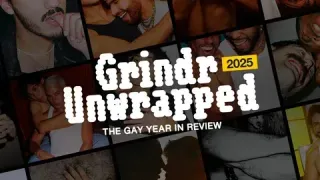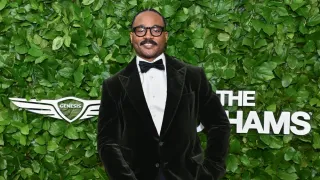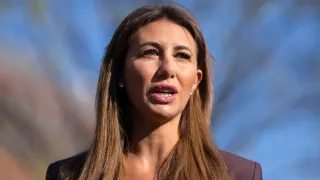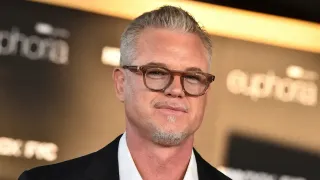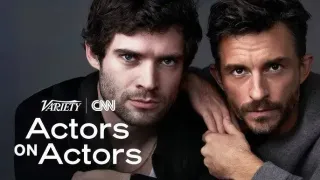November 7, 2020
WNBA Champs Bird, Stewart Make Freezing Eggs Less Taboo
Doug Feinberg READ TIME: 4 MIN.
Sue Bird says she was one of many working women intimidated by the process of freezing their eggs, nearly paralyzed by the stigma so long associated with the decision.
That changed in 2019 for the WNBA champion. At age 40, Bird decided it was time.
"I always put it off and never got around to it," Bird said in a phone interview. "It got to the point where even though I'm at the end of my career, I need to start thinking about planning and being in a relationship changes how you look at things like this. I had enough people around me, including my agent who had done it, that I wanted to do it."
It's coming up on a year since Bird froze her eggs, and she continues to be outspoken about it, even doing a video showing her procedure. She also was part of a push to have the procedure included in the WNBA's new Collective Bargaining Agreement.
Bird said she spent a lot of time thinking about her future off the court over the past year. She got engaged to longtime girlfriend Megan Rapinoe last month and last year, while recovering from knee surgery, froze her eggs to eventually have a family.
The WNBA's all-time assist leader and her Storm teammate Breanna Stewart became more comfortable with the decision after attending an informational meeting together last year at Seattle Reproductive Medicine, a fertility clinic. Stewart, 26, froze her eggs during the summer of 2019; Bird froze hers a few months later.
According to the American Society for Reproductive Medicine, egg freezing typically works best for those in their 20s to early 30s, and is not usually recommended for women over 38 years. Egg quality deteriorates as women age and pregnancy rates are lower for women who freeze their eggs in their late 30 or early 40s.
Bird only had 10 eggs frozen while Stewart had around 40.
Bird and Stewart are among a half-dozen WNBA players who have frozen their eggs according to the players union. And it's not just WNBA players who have done this. UFC champion Carla Esparaza also froze her eggs as well as U.S. boxer Christina Cruz.
The Seattle clinic said it has seen a doubling over the past five years of the number of completed egg freezing attempts. That trend, according to the American Society of Reproductive Medicine, is on par with what's been going on across the nation.
"It wasn't too long ago that it seemed experimental to freeze someone's eggs," said Dr. Nichole M. Barker, who works at Seattle Reproductive Medicine. "In 2012, the American Society of Reproductive Medicine lifted that off. That gave us the ability to do it clinically. That's why you see the numbers going up."
Barker explained that before 2012, it could only be done for emergencies like if a patient had cancer or for research studies. Once technology improved and the science was perfected it became more accepted.
The doctor added that people like "Sue and Breanna are really helping to take down the stigma of 'if I do this I don't want anyone to know about it.?
Bird agrees the subject has been taboo to talk about for too long because of misperceptions. She believes the time has come for that to change, passionately chatting about her own decision.
WNBA players thought it was an important enough issue to push for it to be covered in the current CBA ratified before the 2020 season. Family planning was a topic in the players' small discussion groups, then their requests were forwarded to the union's executive committee and now the current CBA includes family planning benefits.
Bird also stresses that freezing eggs isn't a gay or straight issue. It's an opportunity for women to not have to take time away from their careers.
"This isn't weird, this isn't something that has to be whispered about. This should be normal conversation for all women who have careers, are career oriented or who have goals that way, " Bird said. "Pregnancy can put a huge pause button on things. Freezing eggs is the logical choice of having the family later. The stress of your ovaries being a ticking time clock in there. This alleviates all that stress."
Bird wishes someone had told her when she was younger how easy it was and now hopes her story can encourage others.
"Everything I've found later in my life I wish someone had told me this at 22 or 23," she said. "Something like egg freezing or nutrition. Sure if there's a direct connection its easy, but there may be people out there that I never meet that I can help by making this part of our normal conversation."
Stewart was happy she decided to freeze her eggs while young.
"This was one of the best decisions I made as far as after basketball. I was young, healthy and did have a lot of eggs," the WNBA Finals MVP said. "Giving me a little bit of security for the future if I'm going to have a kid. It's nothing that anyone should be ashamed about, it;s something not talked about. To see Sue and I both going through it in our careers, it's helpful and gives people comfort for those who have done it."
Though the current CBA now covers the procedure, Bird and Stewart froze their eggs before the agreement was ratified and paid for to have it done themselves. But now under the CBA, veteran players, who have played eight or more seasons, can be reimbursed up to $20,000 for costs per year directly related to adoption, surrogacy, egg freezing or fertility/infertility treatment. That amount is capped at $60,000 total per player.
While cost of egg freezing varies, Barker said that the reimbursement would go a long way to covering the cost if insurance didn't.
"It's huge that the league is stepping up as far as taking care of the cost for people having families or freezing their eggs," Stewart said. "Basketball players are back and forth from WNBA to overseas, and there's not much time for anything else. To take the time and freeze your eggs is super important. Hopefully more people will do it, have financial help from WNBA."
